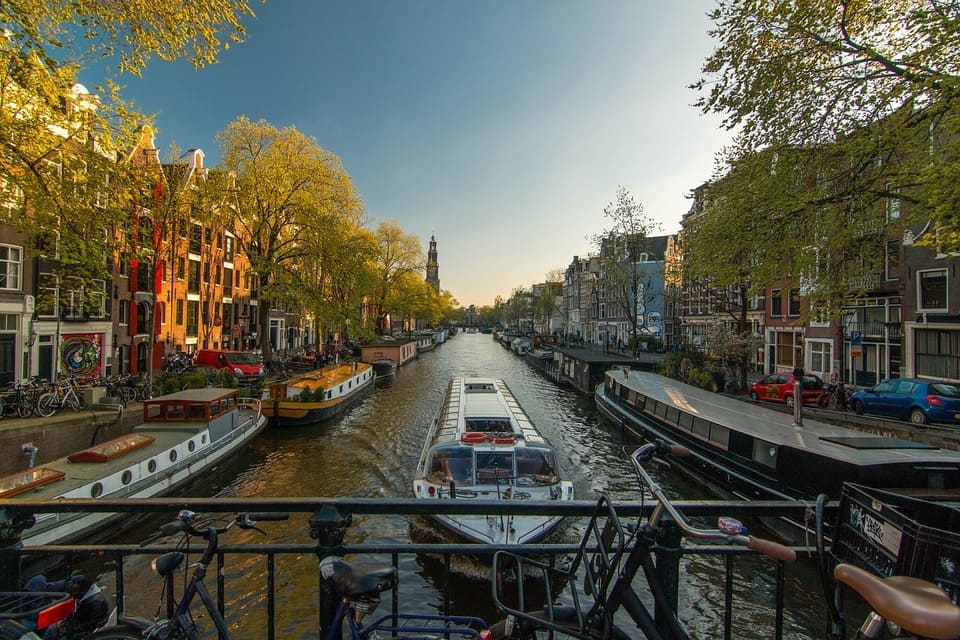
Spoken Languages of Netherlands - Official, National, and Native
The Netherlands, a country renowned for its picturesque landscapes, innovative spirit, and cultural heritage, is also home to a fascinating linguistic landscape that mirrors its historical journey and global outlook. The array of languages spoken in the Netherlands is a testament to its past as a trading hub, colonial power, and a contemporary beacon of multiculturalism. In this article, we'll explore the languages spoken in the Netherlands, their origins, and their significance in shaping the nation's identity.
Dutch - Official and National language of the Netherlands
At the core of the Netherlands' linguistic landscape is Dutch, the official language and a hallmark of the nation's identity. Dutch, often referred to as "Nederlands," serves as the primary medium of communication, government affairs, education, and media. Its roots can be traced back to the early Middle Ages when various Germanic tribes settled in the region.
The Dutch language experienced significant evolution over the centuries, with influences from neighboring countries, particularly Germany and Belgium. Its grammatical structure, vocabulary, and pronunciation have shaped a distinctive linguistic identity. Despite this individuality, Dutch remains connected to its Germanic language relatives, such as German and English, through shared linguistic traits.
Frisian - Other Official and National language of the Netherlands
Frisian, or "Frysk," occupies a unique position in the Netherlands as a co-official language alongside Dutch. Spoken predominantly in the province of Friesland, Frisian is an ancient language with roots in the Anglo-Frisian branch of the Germanic languages. Its relationship to English is evident through shared linguistic features.
Frisian is not only a linguistic treasure but also a symbol of cultural pride and preservation. The province of Friesland places significant emphasis on maintaining and promoting the Frisian language. Schools teach in Frisian, and cultural initiatives celebrate its heritage. This commitment has nurtured a strong Frisian identity within the context of the broader Dutch nation.
Papiamento - Regional Language of the Netherlands
Migration languages of the Netherlands
The Netherlands' history as a colonial power and its modern-day global outlook have led to the presence of numerous languages from around the world within its borders. These languages are often spoken by immigrant communities, each contributing to the country's rich multicultural fabric.
- Turkish - The Turkish language echoes the presence of a sizable Turkish community in the Netherlands. Dating back to the 1960s when Turkish labor migrants arrived, Turkish has become an important language for communication within this community.
- Arabic - Arabic is another prominent language, spoken by various communities of Middle Eastern and North African origin. Arabic's significance extends beyond linguistic communication—it serves as a means of maintaining cultural connections and religious practices.
- Berber - The Berber languages, native to North Africa, are spoken by the Berber diaspora in the Netherlands. While these languages often coexist with Arabic, they play a crucial role in preserving the distinct cultural identity of the Berber communities.
- Indonesian - Reflecting the colonial history of the Netherlands, Indonesian languages are spoken by the Indonesian Dutch community. This linguistic connection harks back to the colonial ties between the two nations.
- Surinamese Languages - Suriname, a former Dutch colony, has left an enduring linguistic imprint on the Netherlands. Languages such as Sranan Tongo, Javanese, and Hindustani are spoken by the Surinamese diaspora, highlighting the historical and cultural ties between the two nations.
Status of English in the Netherlands
The English language holds a unique and significant status in the Netherlands, largely due to the country's emphasis on education, international business, and its global outlook. While not an official language or a regional language like Dutch or Frisian, English plays a prominent role in various aspects of Dutch society. Here's a closer look at the status of the English language in the Netherlands.
- High Proficiency of the Netherlands population in English - The Dutch are renowned for their exceptional proficiency in English. According to the EF English Proficiency Index, the Netherlands consistently ranks among the top countries in the world with the highest English proficiency levels among non-native speakers. This proficiency is attributed to the Dutch education system, which places a strong emphasis on language education from an early age.
- English - Language of Education in the Netherlands - English is widely used as a medium of instruction in higher education in the Netherlands. Many universities and institutions offer a variety of degree programs in English, attracting a significant number of international students. This practice not only enhances the country's global academic reputation but also fosters a multicultural learning environment.
- English in International Business and Trade - The Netherlands is a global economic player with a strong focus on international trade and business. English serves as the lingua franca for many business interactions, especially in sectors like finance, technology, logistics, and tourism. English proficiency is essential for effective communication with international partners, clients, and customers.
- Multiculturalism and Global Connections with English - The Netherlands has a diverse population that includes expatriates, immigrants, and international workers. English often serves as a common language for communication among these communities, contributing to social cohesion and integration.
- English in the Tourism and Hospitality Sector of the Netherlands - The Dutch tourism industry relies heavily on English as the primary language of communication with tourists. Signs, menus, and information in tourist destinations are often available in English to cater to the needs of visitors from around the world.
- Impact of English on Dutch Identity - While English has a strong presence in the Netherlands, it hasn't overshadowed the importance of the Dutch language. Dutch remains integral to the country's identity, culture, and governance. English proficiency is seen as an additional skill that enhances opportunities rather than as a replacement for Dutch.
Netherlands Native languages – Limburgish, Low Saxon, Zeelandic
While Dutch is the primary language, the Netherlands is also home to various regional languages that add depth to its linguistic mosaic.
Limburgish - Spoken in the province of Limburg, Limburgish is a group of dialects that have a significant influence on the linguistic identity of the region. Efforts are being made to promote and preserve this native Netherlands language, which is distinct from standard Dutch.
Low Saxon - Low Saxon, or "Nedersaksisch," is a collection of dialects spoken in the northeastern part of the Netherlands. Similar to Limburgish, Low Saxon, as the native language of the Netherlands, holds cultural value and is part of the nation's linguistic heritage.
Zeelandic - Zeelandic, originating in the province of Zeeland, is another regional Netherlands native language that reflects the country's linguistic diversity. It is characterized by its unique phonetics and vocabulary.
Languages Spoken in the Netherlands in Percentage
The linguistic landscape of the Netherlands is marked by diversity, with Dutch being the most widely spoken language. As of the latest available data, the language breakdown in terms of speakers is as follows.
- Dutch - Approximately 95% of the population speaks Dutch as their first language. Dutch is the most spoken language in the Netherlands This includes various dialects and regional variations that add flavor to the linguistic tapestry.
- English - Over 90% of the Dutch population has a good command of English, often as a second language. This high level of English proficiency reflects the Dutch commitment to multilingualism.
- Frisian - Spoken by around 453,000 people, or roughly 2.6% of the population, Frisian remains a cherished language in Friesland.
- Turkish - Turkish is spoken by about 2% of the population, primarily by the Turkish community that has settled in the Netherlands.
- Arabic - With about 1.5% of the population speaking Arabic, it holds a significant place due to the country's diverse immigrant population from Arabic-speaking countries.
- Spanish - Spanish speakers constitute around 1% of the population, largely driven by interest in learning the language and engaging with Spanish-speaking cultures.
- Other Languages - Various other languages, including Chinese, Polish, and Indonesian, are spoken by smaller percentages of the population, reflecting the global nature of Dutch society.
A Harmonious Multilingual Ensemble of the Netherlands
The languages spoken in the Netherlands form a harmonious ensemble that reflects the nation's historical ties, global engagements, and commitment to diversity. Dutch and Frisian are the pillars of identity, while the languages of migration illustrate the Netherlands' multicultural character. The proficiency in English showcases the nation's adaptability and global connections. Regional languages and dialects contribute to a rich linguistic tapestry that adds vibrancy to the Dutch cultural landscape. As the Netherlands continues to navigate the complex interplay of languages, it embraces its linguistic diversity as a source of strength, unity, and endless possibilities.
PoliLingua - Your Bridge to Netherlands Language Translations
When the need arises to navigate the languages of the Netherlands, PoliLingua, an esteemed international translation service provider, stands ready to guide you through the intricacies of effective communication. With a team of expert translators well-versed in the nuances of Dutch, Frisian, and more, PoliLingua transforms your content into clear, culturally sensitive translations that capture the essence of your message.
To embark on this transformative journey, simply upload your document and receive a free quote tailored to your project's requirements. Have questions? Seeking clarity? PoliLingua's responsive team is just a call or email away, eager to ensure your experience is seamless and your translations resonate across languages and cultures.







